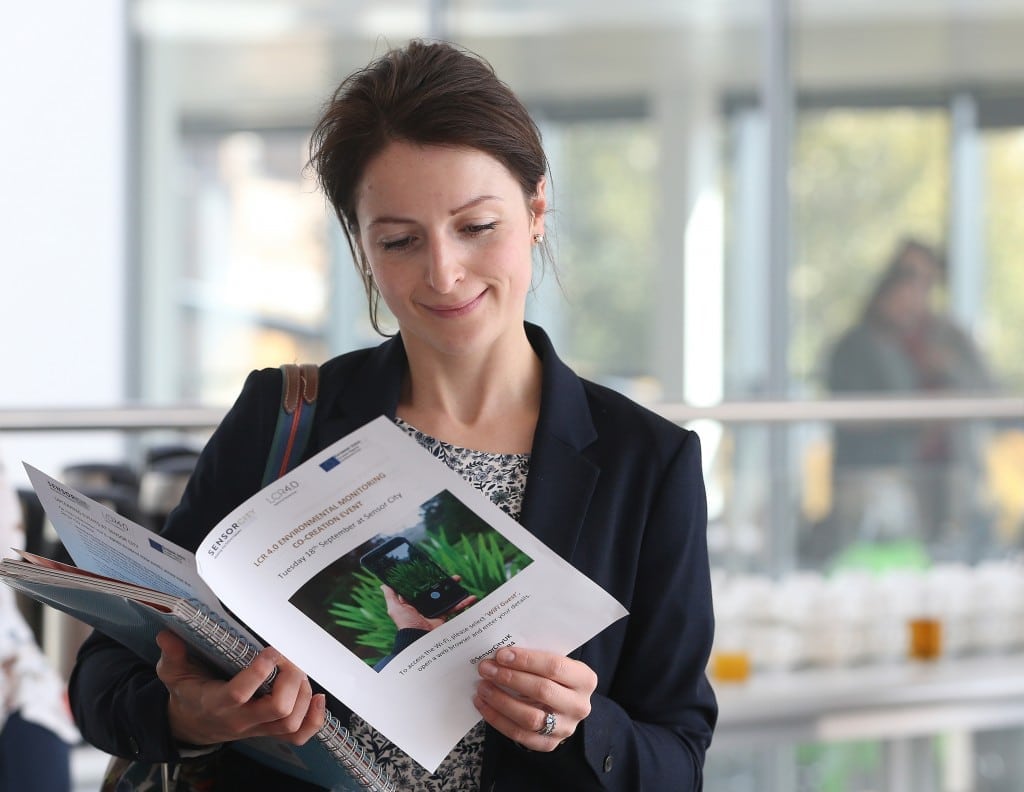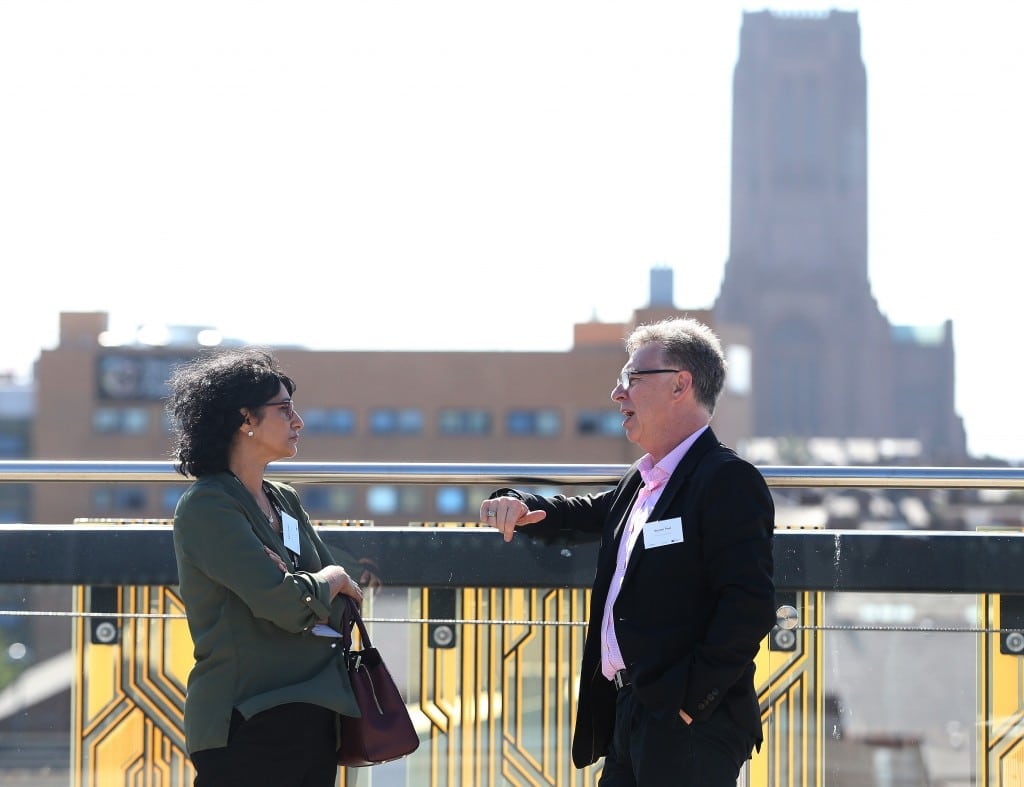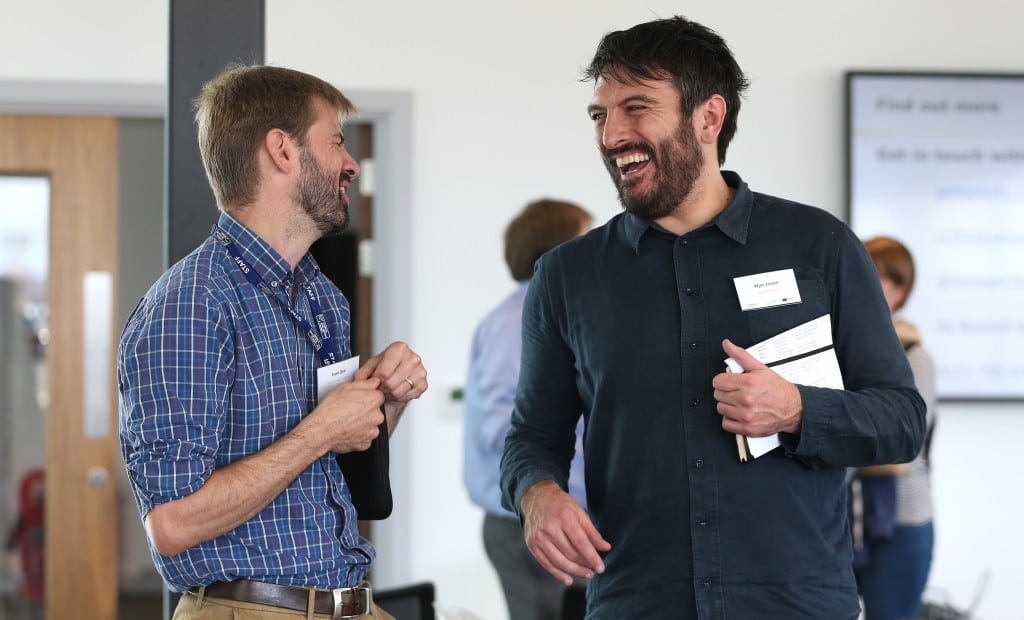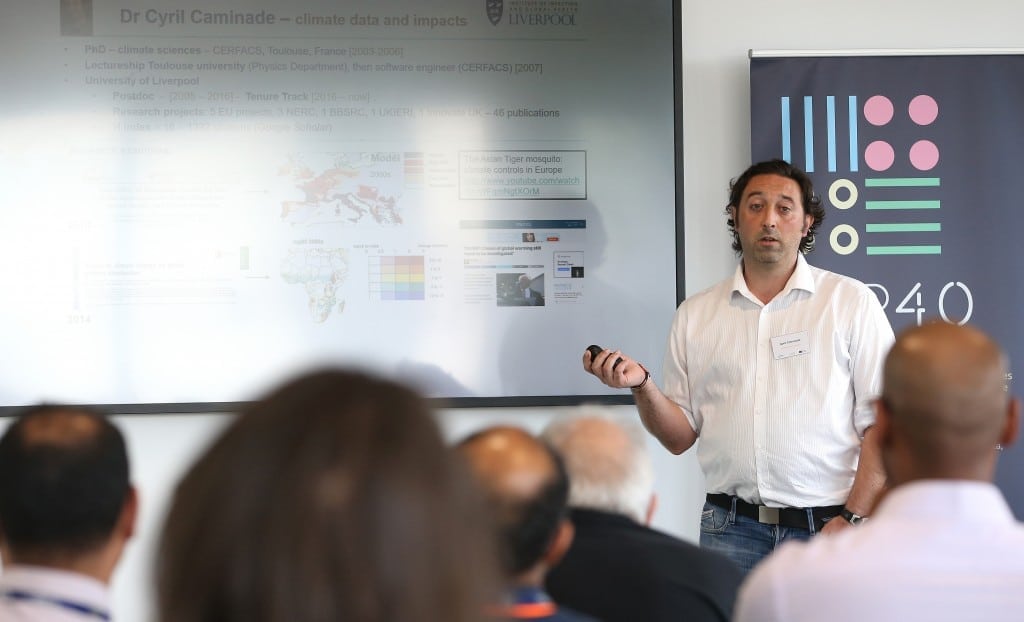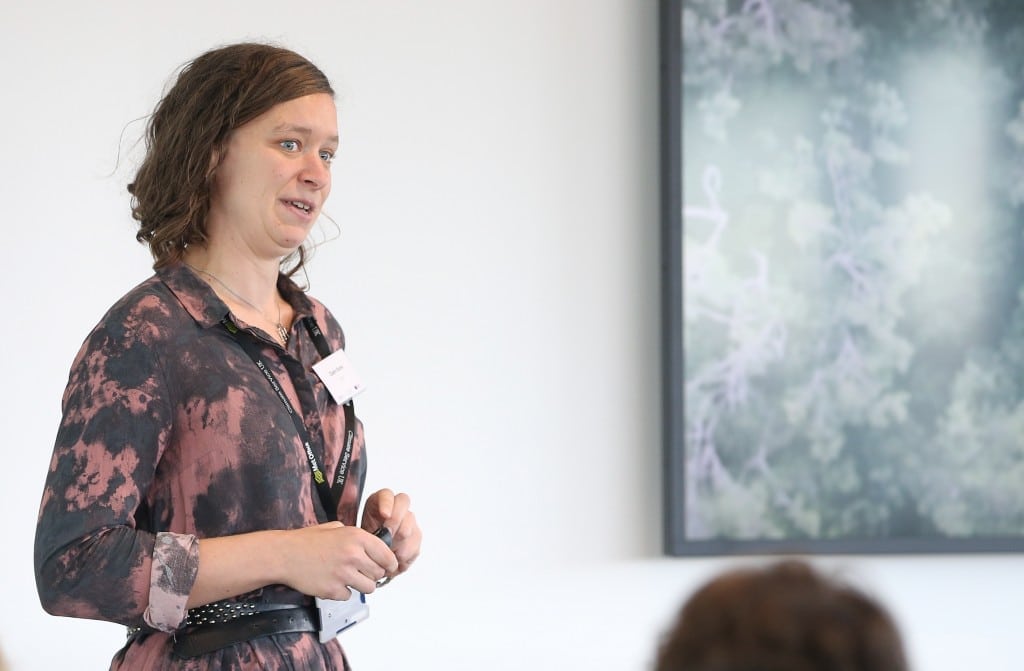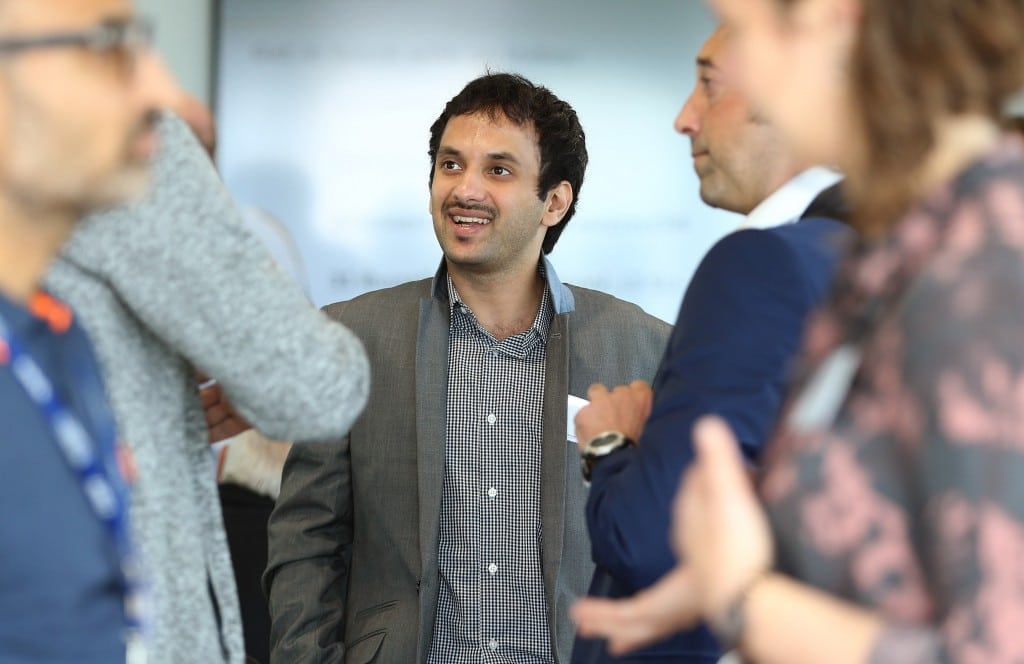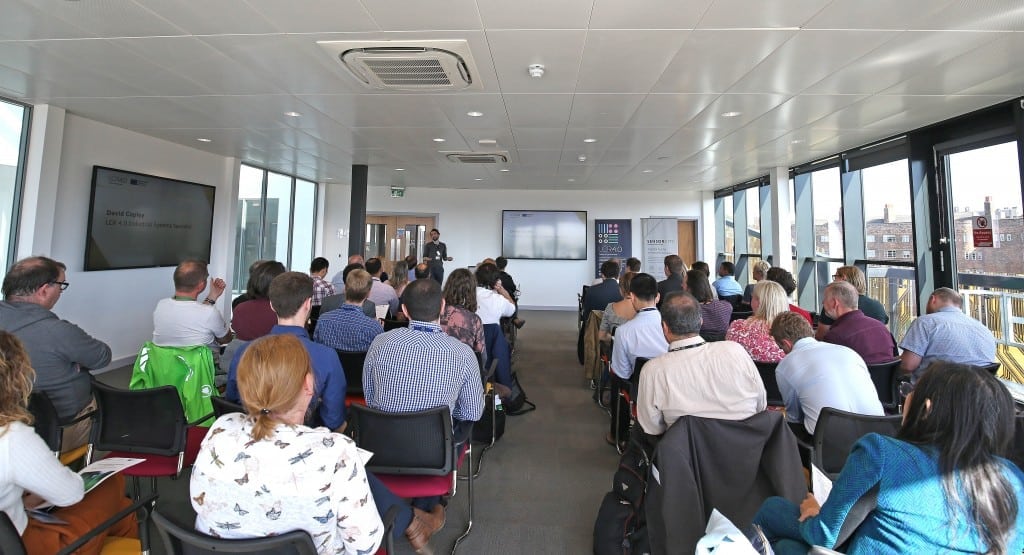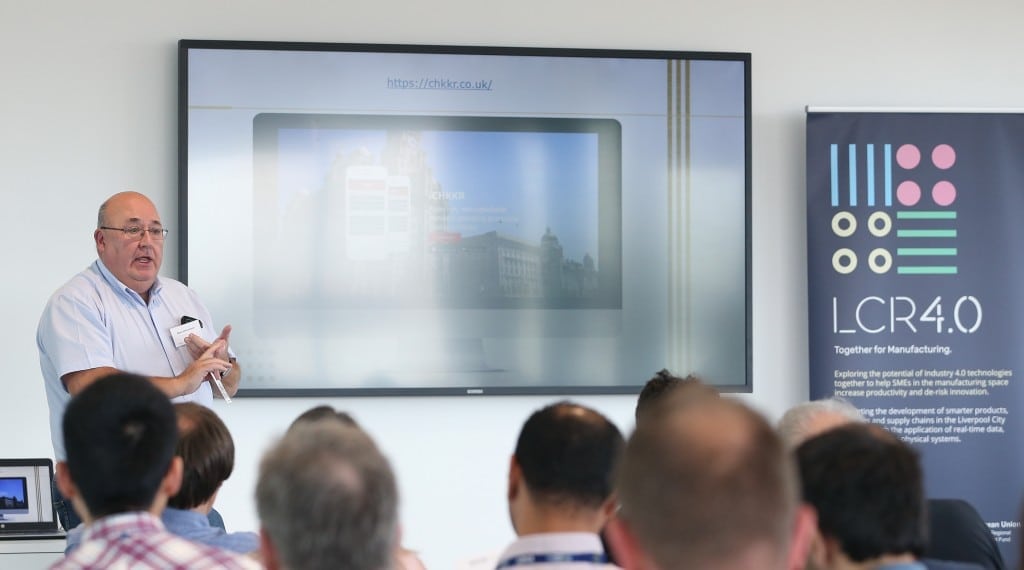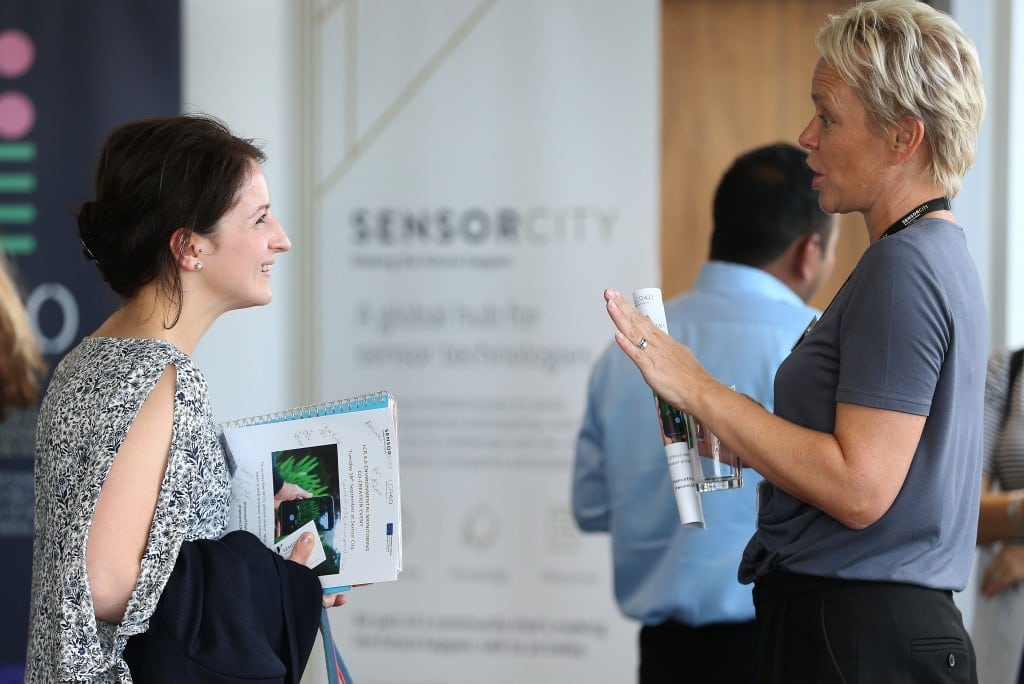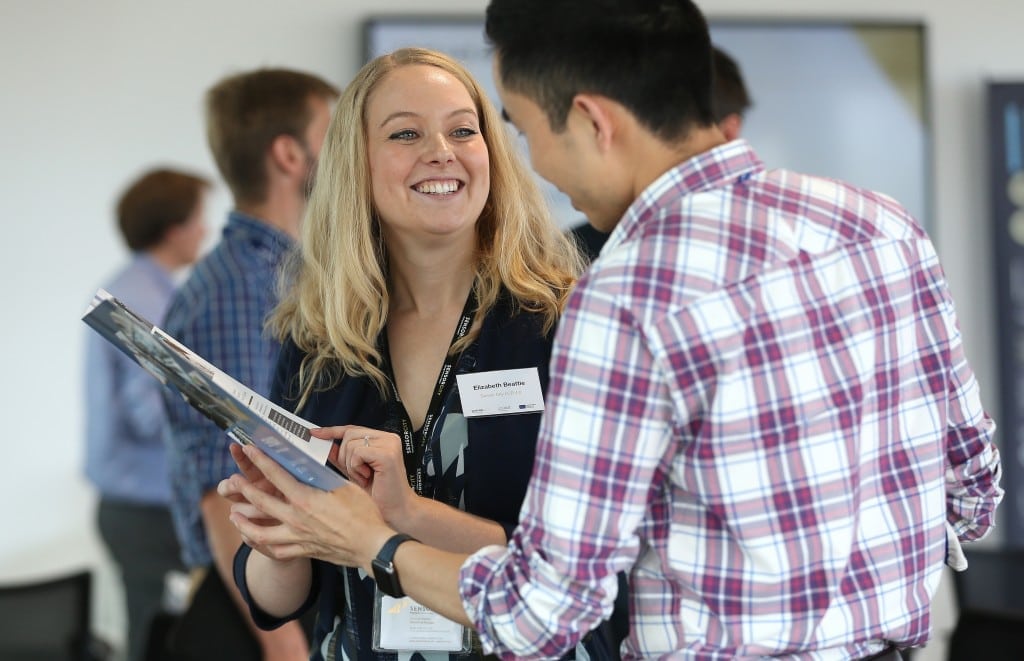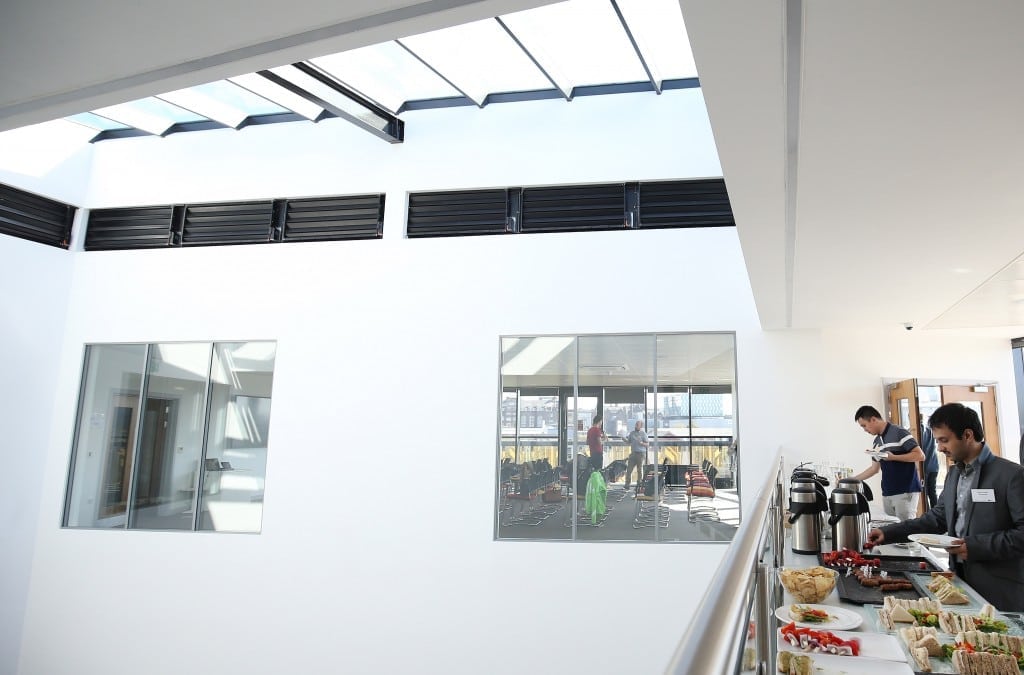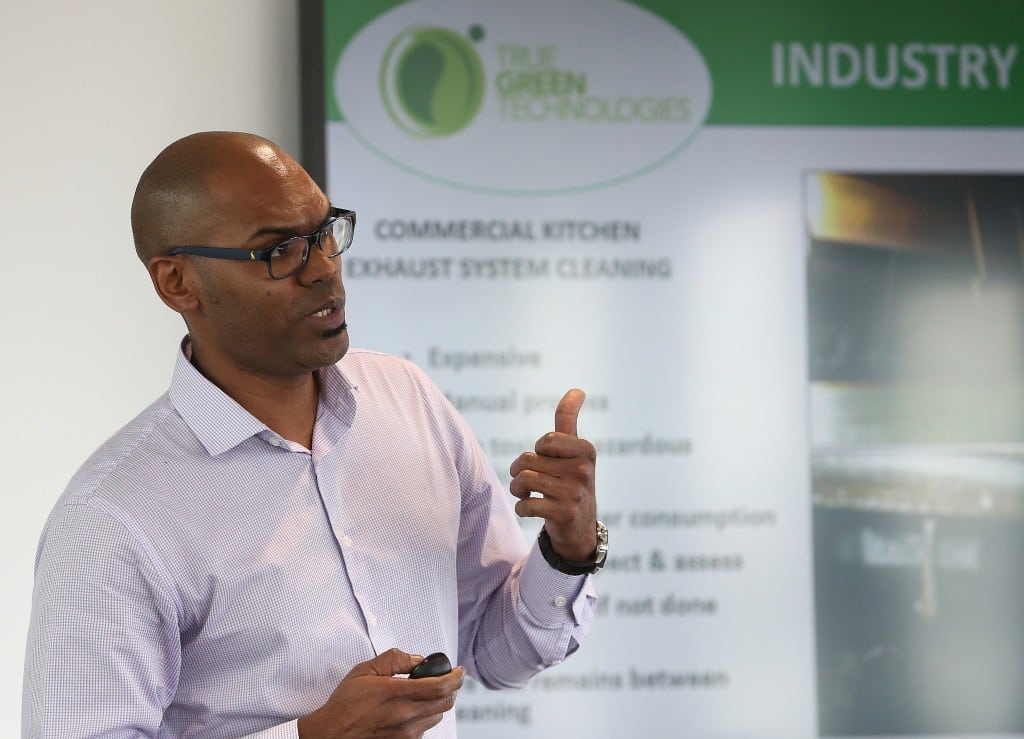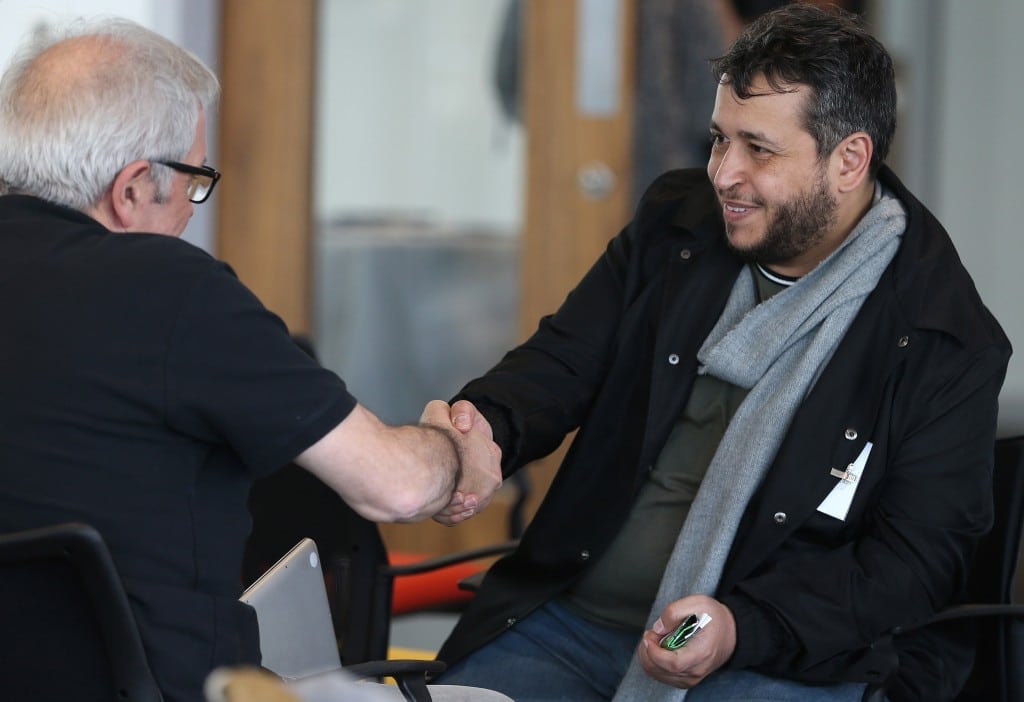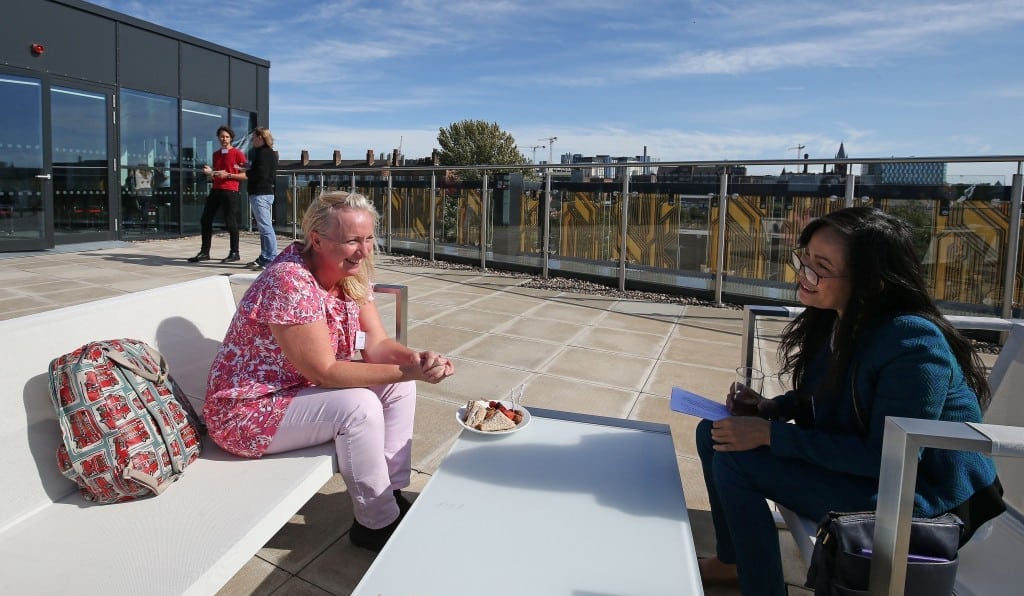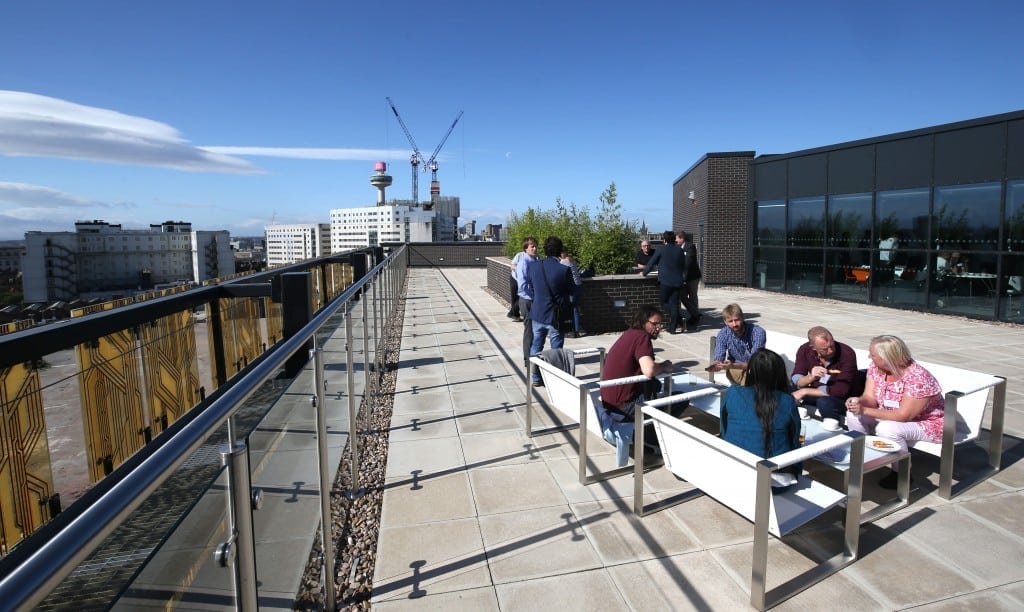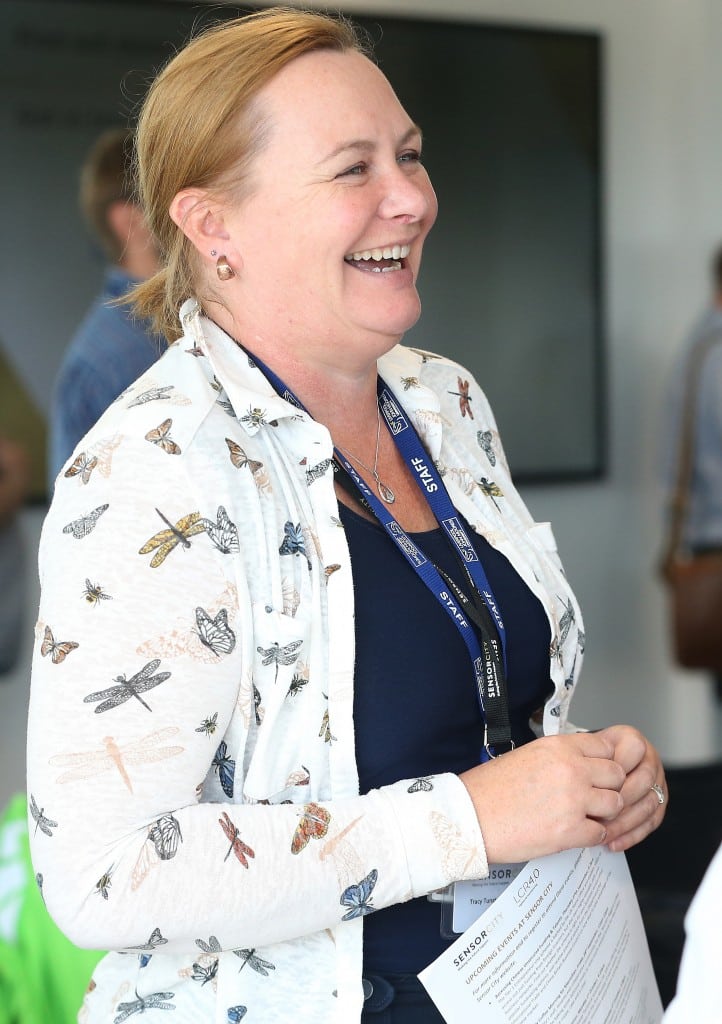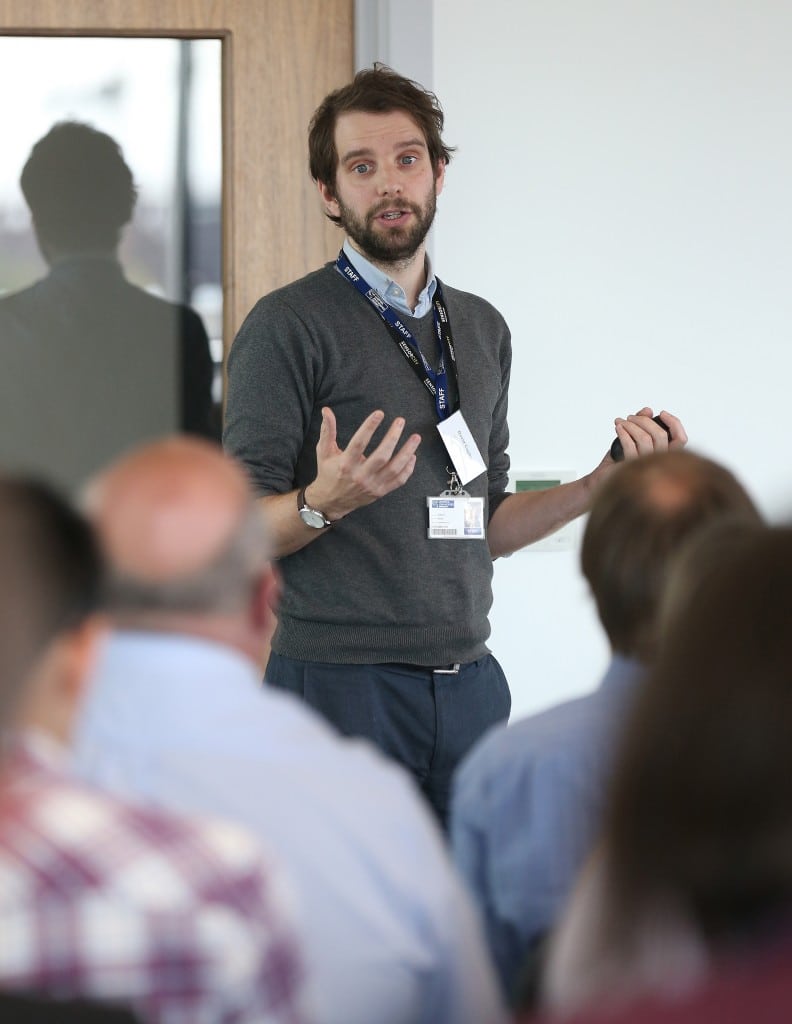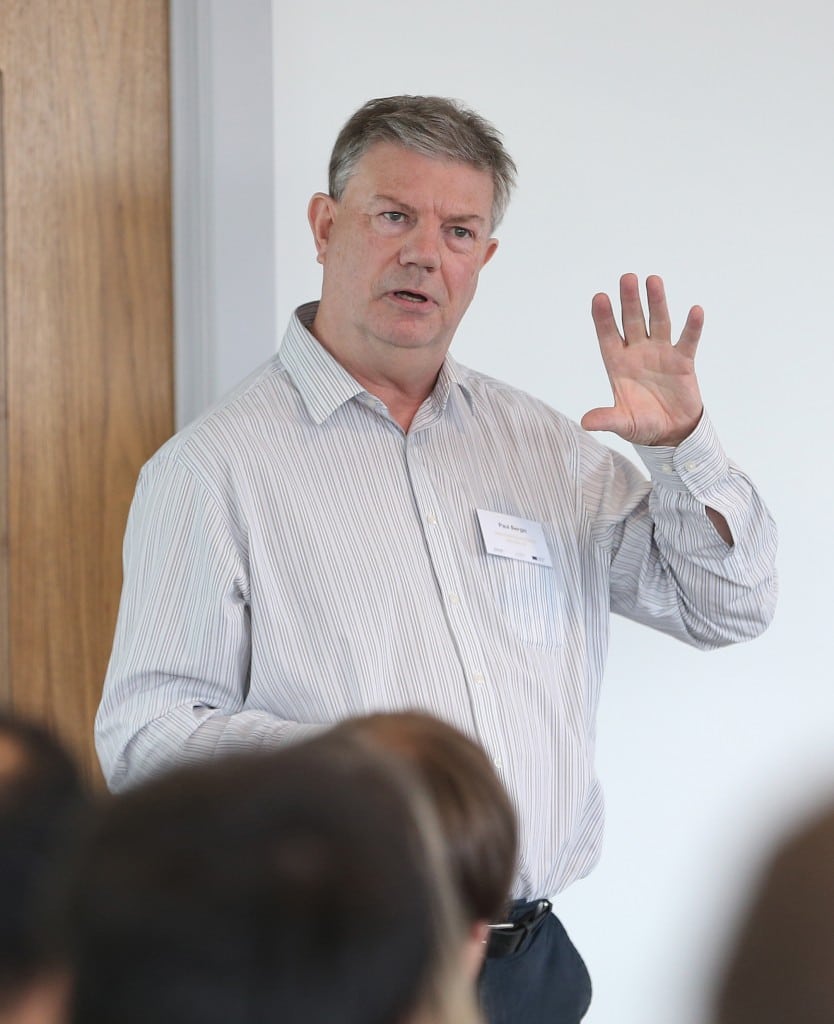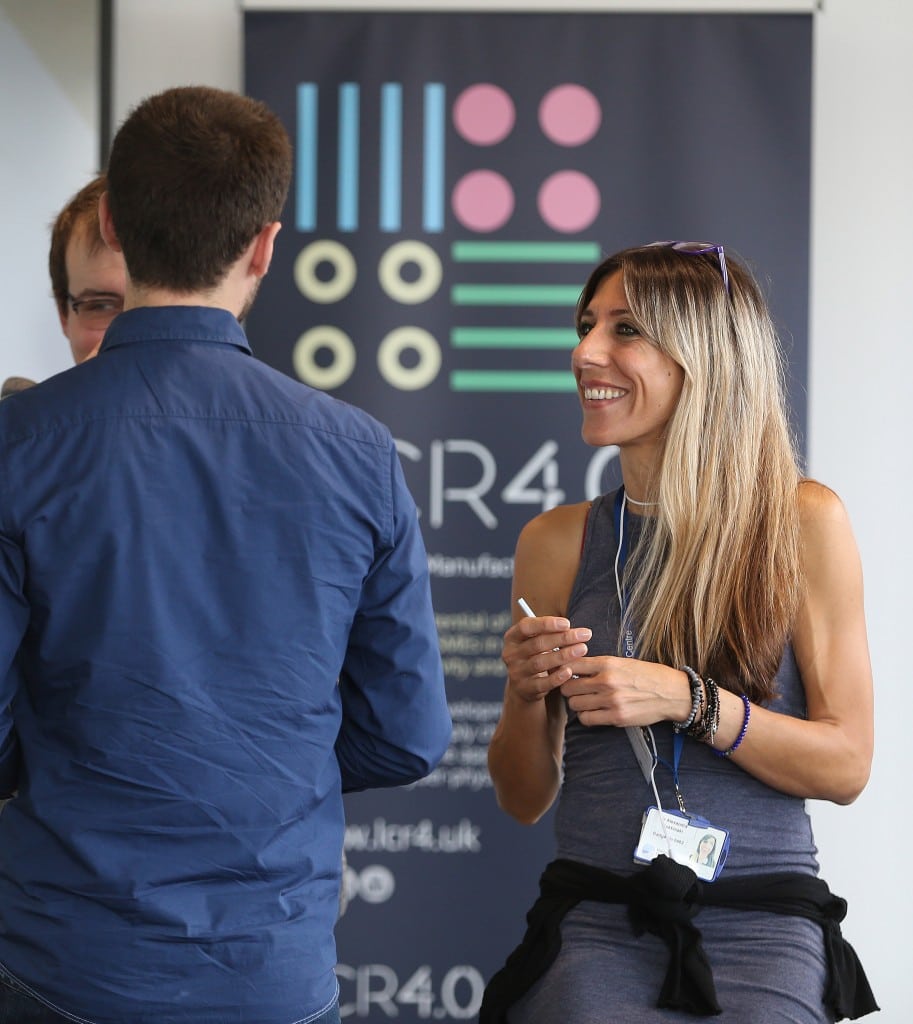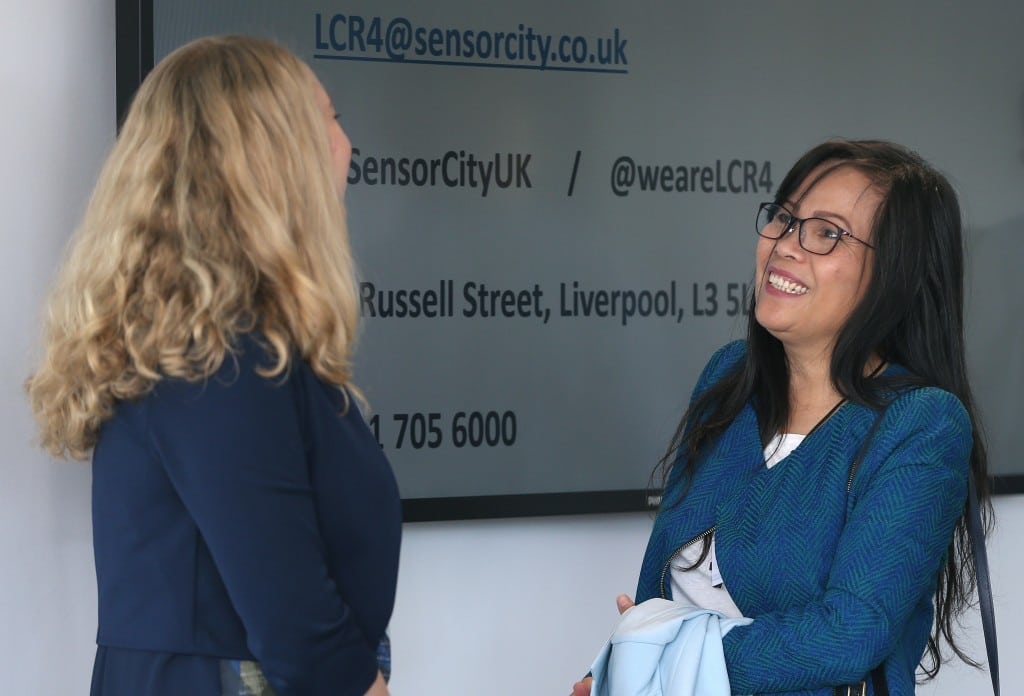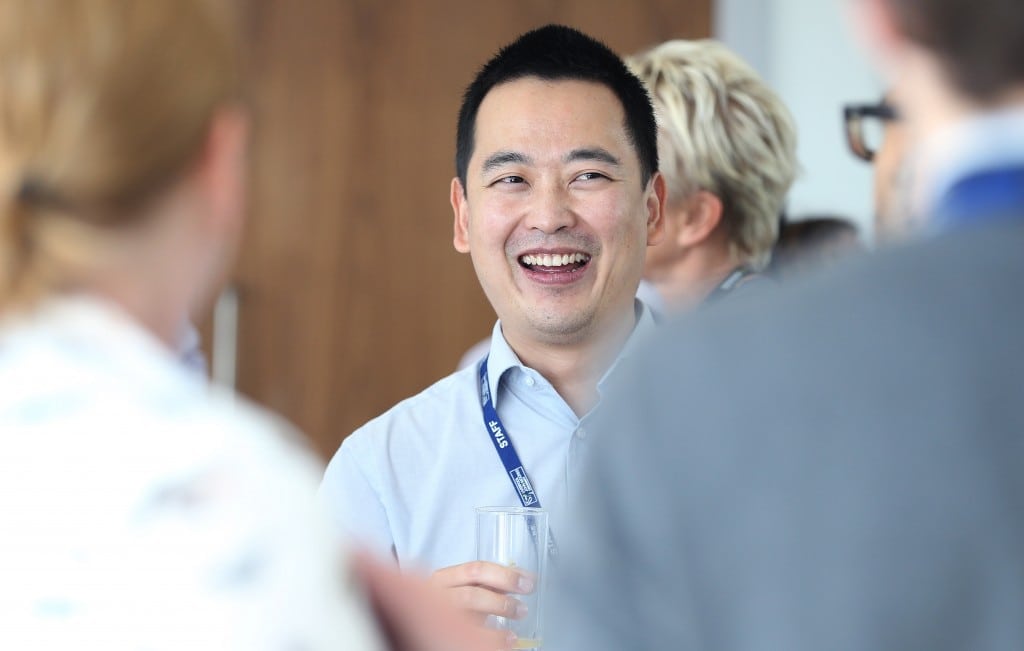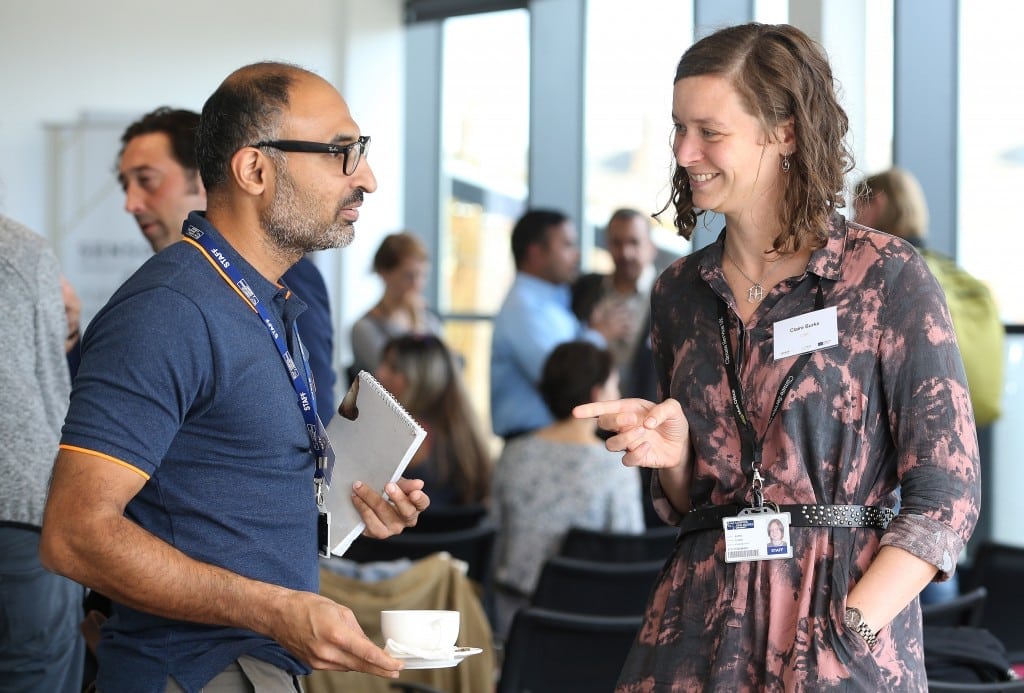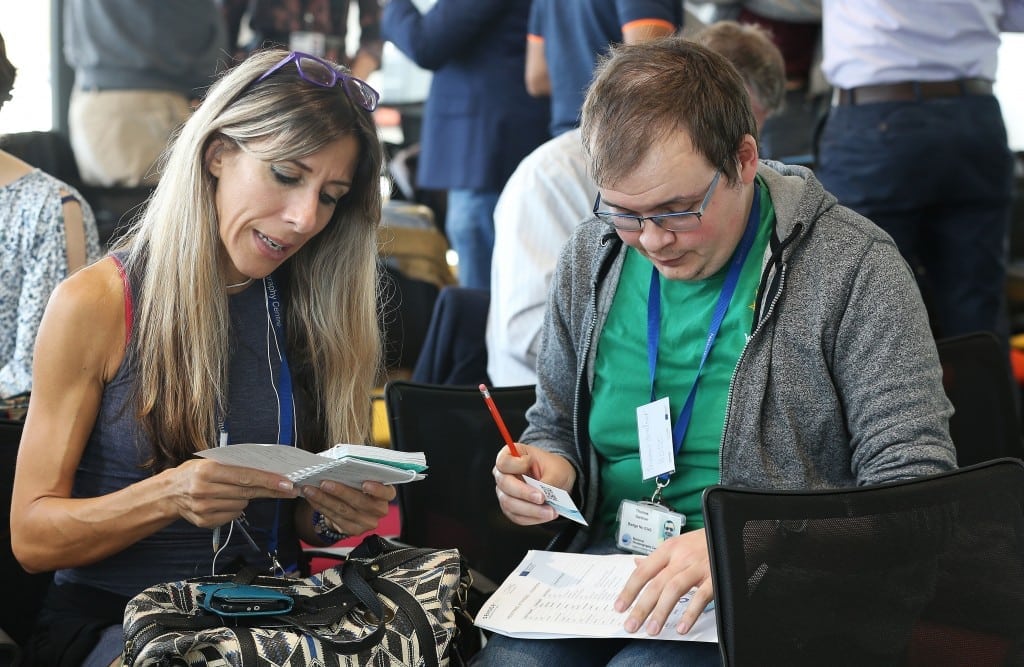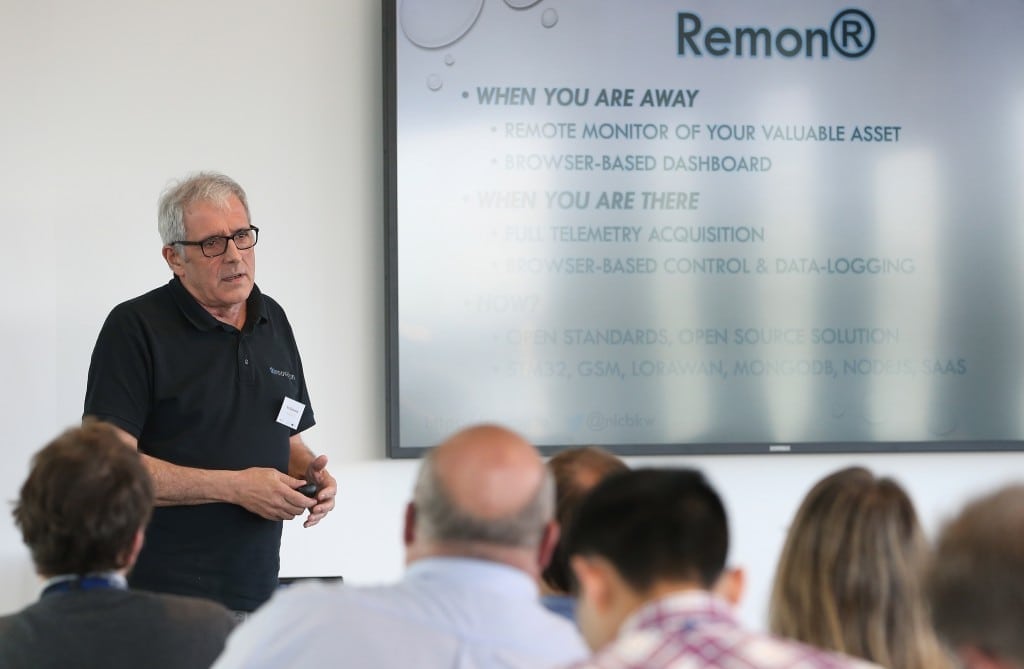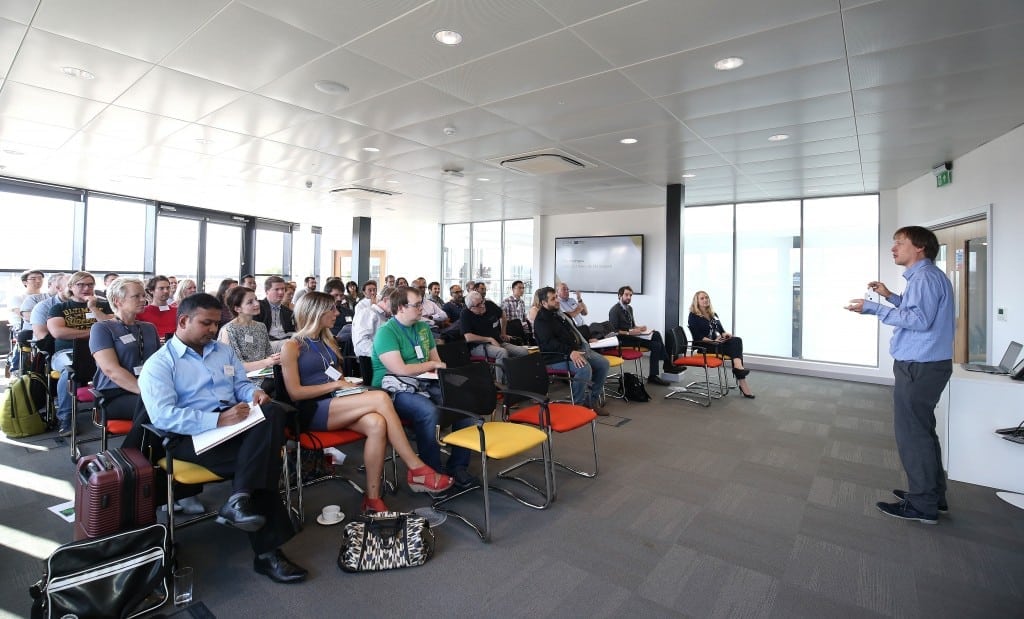Last week’s LCR 4.0 ‘Environmental Monitoring Co-Creation’ event at Sensor City proved a big success.
Attended by over 40 delegates from across industry and academia, the event provided a platform to explore synergistic opportunities and collaborative working, relating to Environmental Monitoring.
Participants were first introduced to the LCR 4.0 programme and made aware of the specialist equipment and expertise at Sensor City, which has already helped a number of companies with various monitoring and system issues.
A series of short, specialist presentations followed, which were delivered by Research Fellows and Lecturers from both the University of Liverpool and Liverpool John Moores University, as well as by a number of leading businesses and entrepreneurs.
The ten presentations covered a vast array of technologies and sectors, with the projects discussed including everything from Astro Physics to Farming, and Catering to the Marine industry.
A brief summery of each topic is below:
- Kai Hoettges, University of Liverpool – Sensing monitoring hardware
- Claire Burke, Liverpool John Moores University – Drones and thermal infrared for environmental monitoring and ecology
- Yifan Zhou, University of Liverpool – Data analysis and wild animal tracking
- Ming Liu, University of Liverpool – Porous organic cage technology for high efficient formaldehyde removal
- Cyril Caminade, University of Liverpool – Climate change impacts on environmental data and applications for heath
- True Green Technologies – Global ventilation services and kitchen exhaust systems
- CHKKR.CO.UK – QR Code based checking systems and operating proceedures
- Hexsor Scientific Limited – Water quality and toxin monitoring using optical spectrometers
- Thinnovation Ltd – Remote monitoring using open standard solutions
- Valley Field Environmental Services Ltd – Rio Power project using hydro dams for sustainable development
Following this, delegates engaged in discussions with each other to explore synergies between their different industries, to see if existing products and innovations could be adapted to new applications. Technologies already being developed and used by attendees include IoT devices, blockchain, apps, drones and sensors.
It was exciting to hear some new ideas and prospects for research and prototypes being discussed, which will hopefully lead to the co-creation of future environmental monitoring tools.
It was also encouraging to learn about existing collaborations between companies and academics, and those that have already linked in with other innovation hubs including the Materials Innovation Factory and Liverpool Science Park.
The future of environmental monitoring certainly looks to be dynamic, thanks to the pioneering work of both businesses and universities. Whether it’s on a grand scale for the development of Smart Buildings and Cities, or more tightly focused on tracking minute fruit flies, by sharing best practice and collaborating with different industries, more and more innovative ideas and concepts will be born, which will benefit us all.
